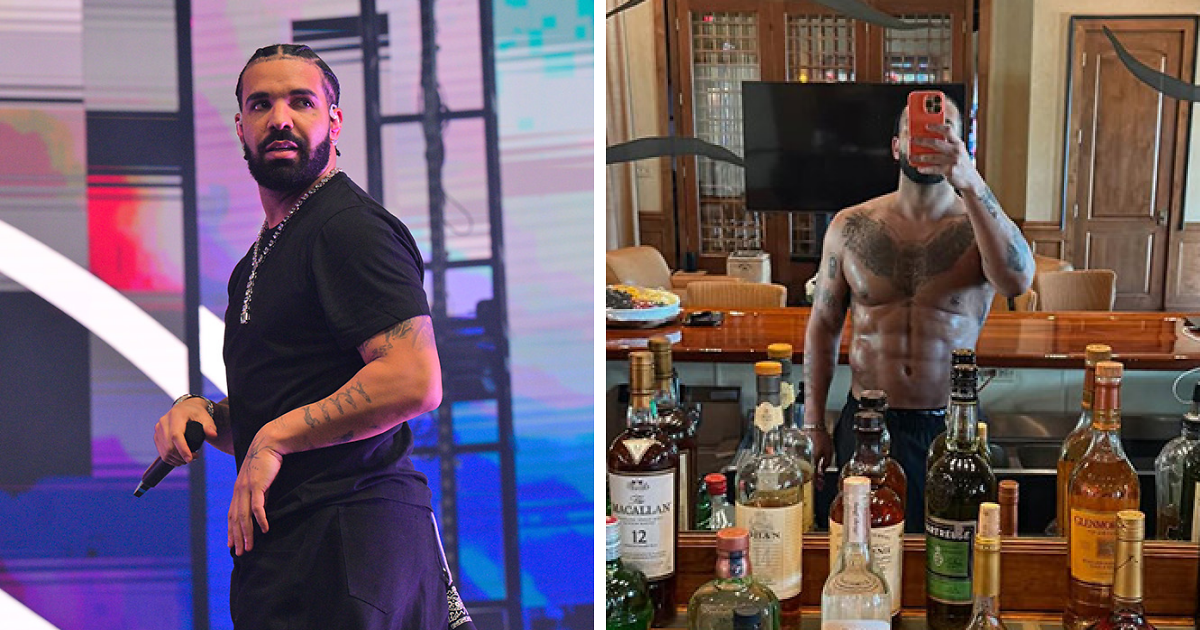“Devastated Chef Contemplates Divorce After Husband’s Shocking Betrayal of Her Surgery Recovery Meal!”
Image credits: Freepik (not the actual photo)
Her husband ate some of his meals, then decided to finish all of the woman’s “special diet” post-op meals too
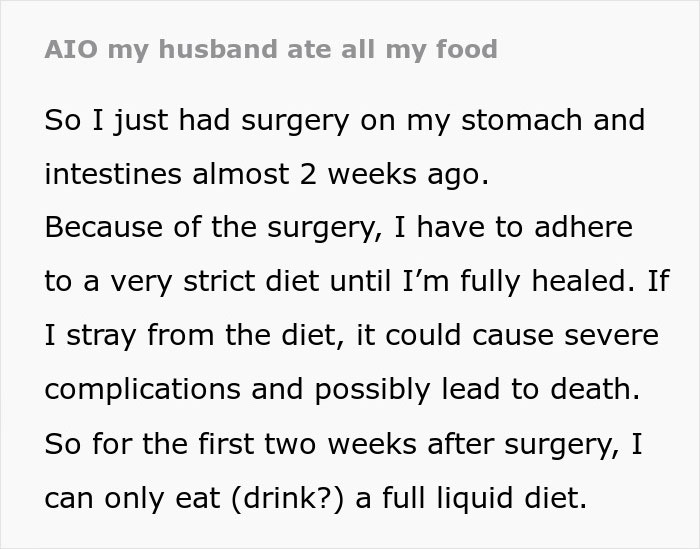
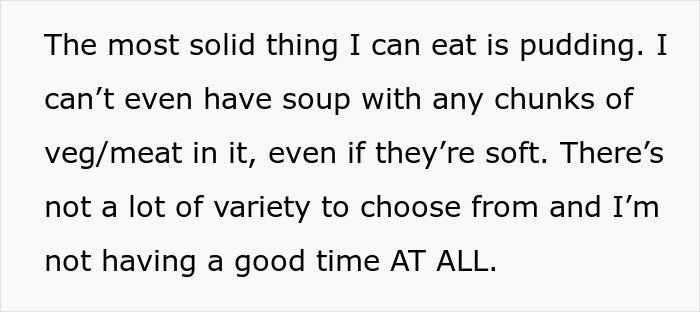
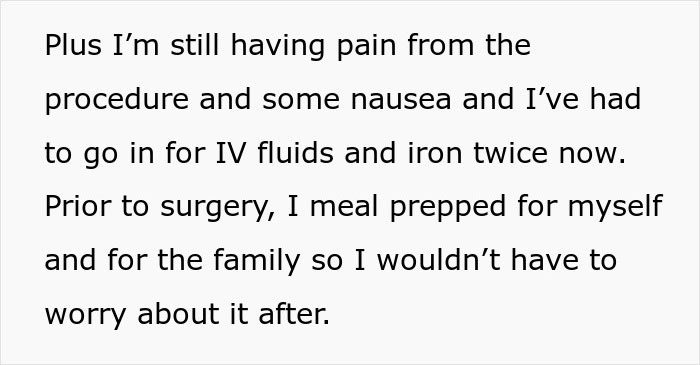
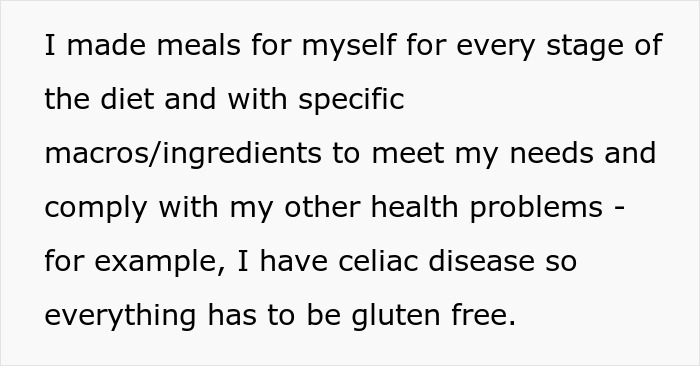

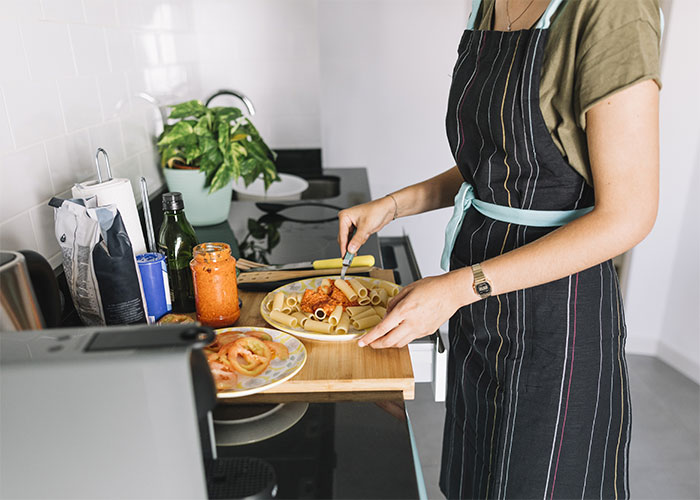
Image credits: Freepik (not the actual photo)
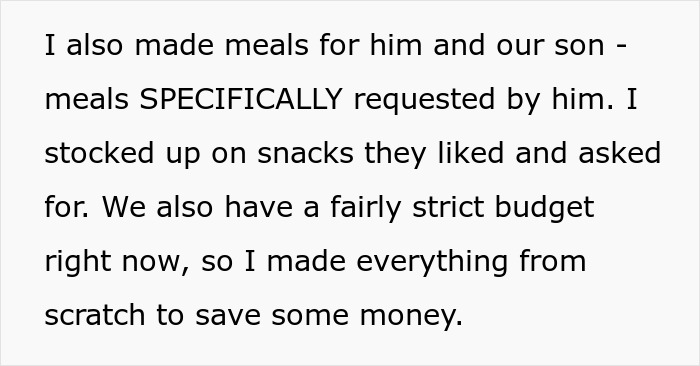





Image credits: drobotdean / Freepik (not the actual photo)
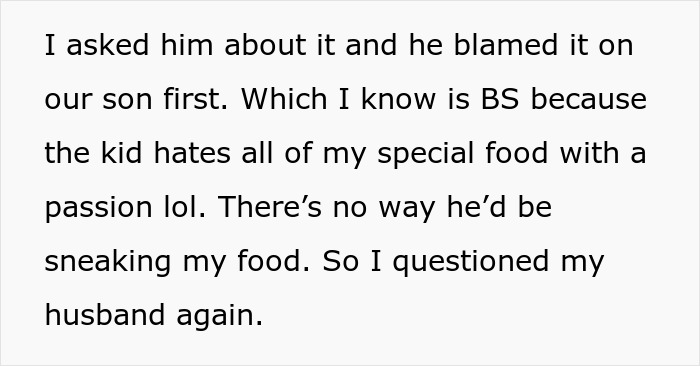
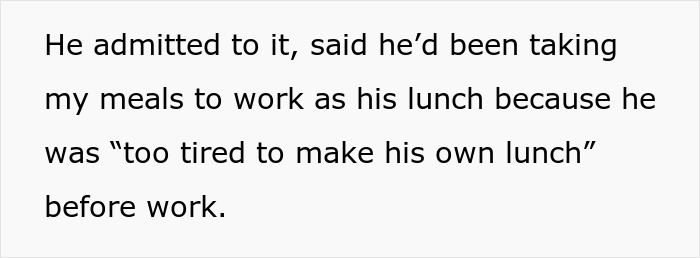
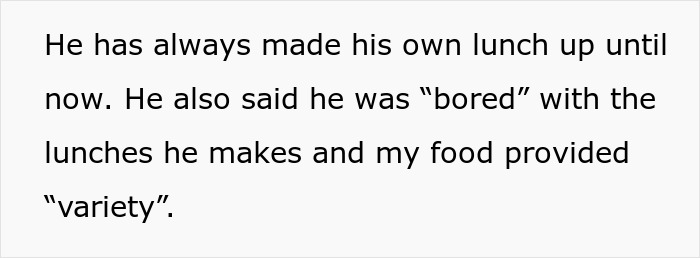
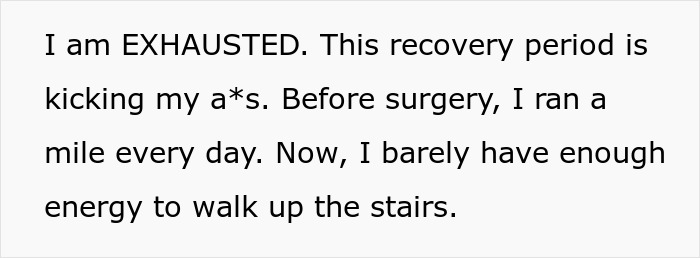
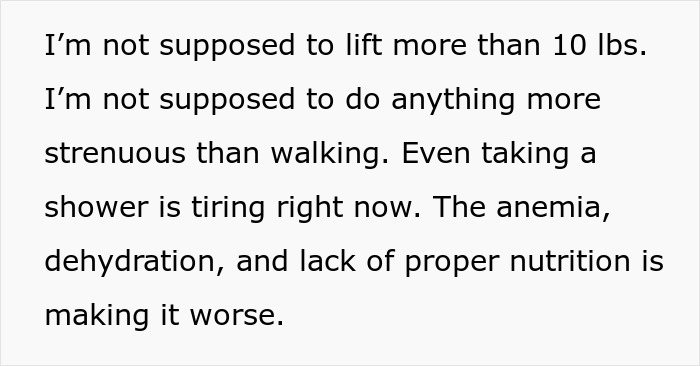

Image credits: LightFieldStudios / Envato Elements (not the actual photo)
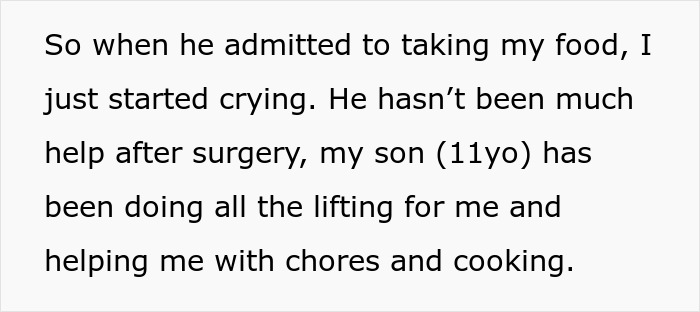
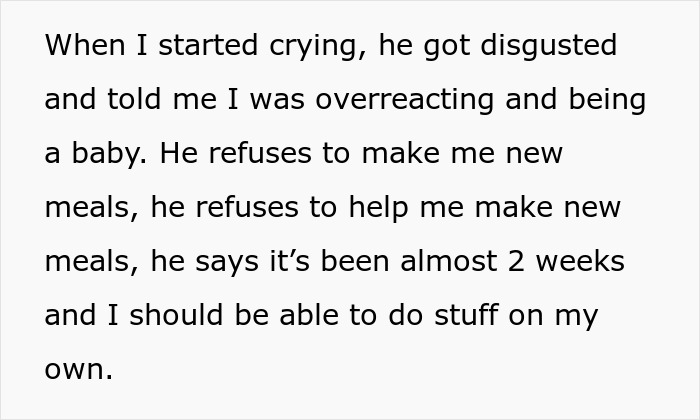
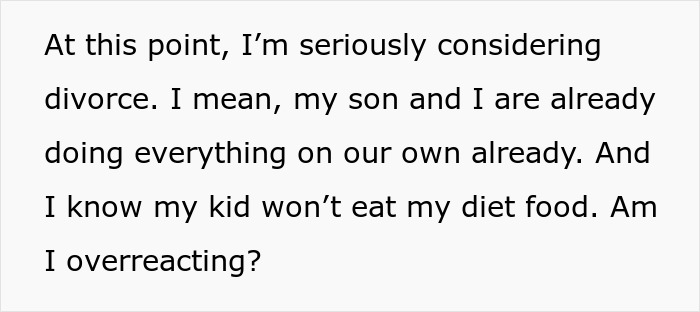
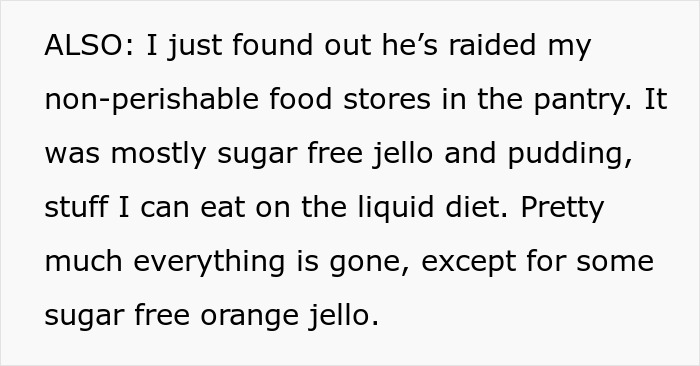
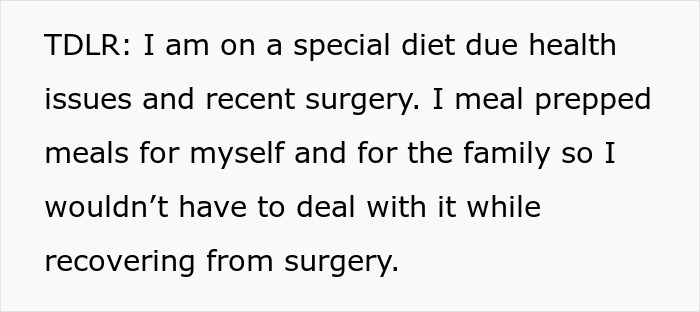
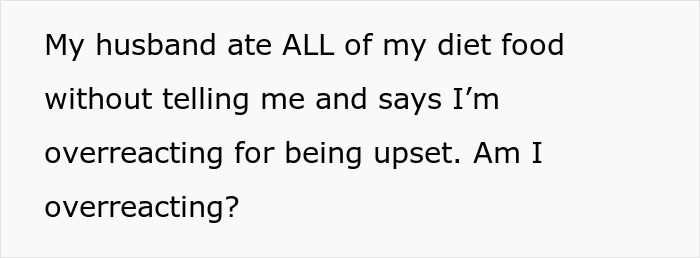
Image credits: TheDingoAteMyJawa
Following a proper post-surgery diet helps your body recover faster and promotes wound healing
A patient sometimes wonât be allowed to eat at all immediately after a gastrointestinal operation. And could be put on a liquid diet once their body is ready. A clear fluid or liquid diet only allows someone to ingest stuff thatâs easy for their body to break down. Itâll leave little or no food in your gastrointestinal (GI) tract.
This type of diet includes clear liquids and a few liquids with color. Drinks like water, certain fruit juices, black tea and coffee, and sports drinks are allowed. Other things like Jell-O, sherbert, popsicles, honey, and clear soup are also okay. But it depends on what your doctor has advised.
A full fluid diet is similar to a clear fluid diet. But you can also have things like milk, yogurt, puddings, milkshakes, strained creamy soups, warm cereals and nutritional supplements like âEnsureâ or âBoostâ. In the case of the woman, she was on a full fluid plan for the first two weeks.
Once your body can manage a fluid diet, your doctor will slowly move you onto solids, but youâll still have to watch what you eat
Youâd likely start with a âLight Dietâ. It includes small portions of low fiber, soft foods that should help your intestines recover while they get used to digesting food again. Some of the food allowed includes certain fruit and vegetables, plain fish and chicken, eggs, pasta and rice.


